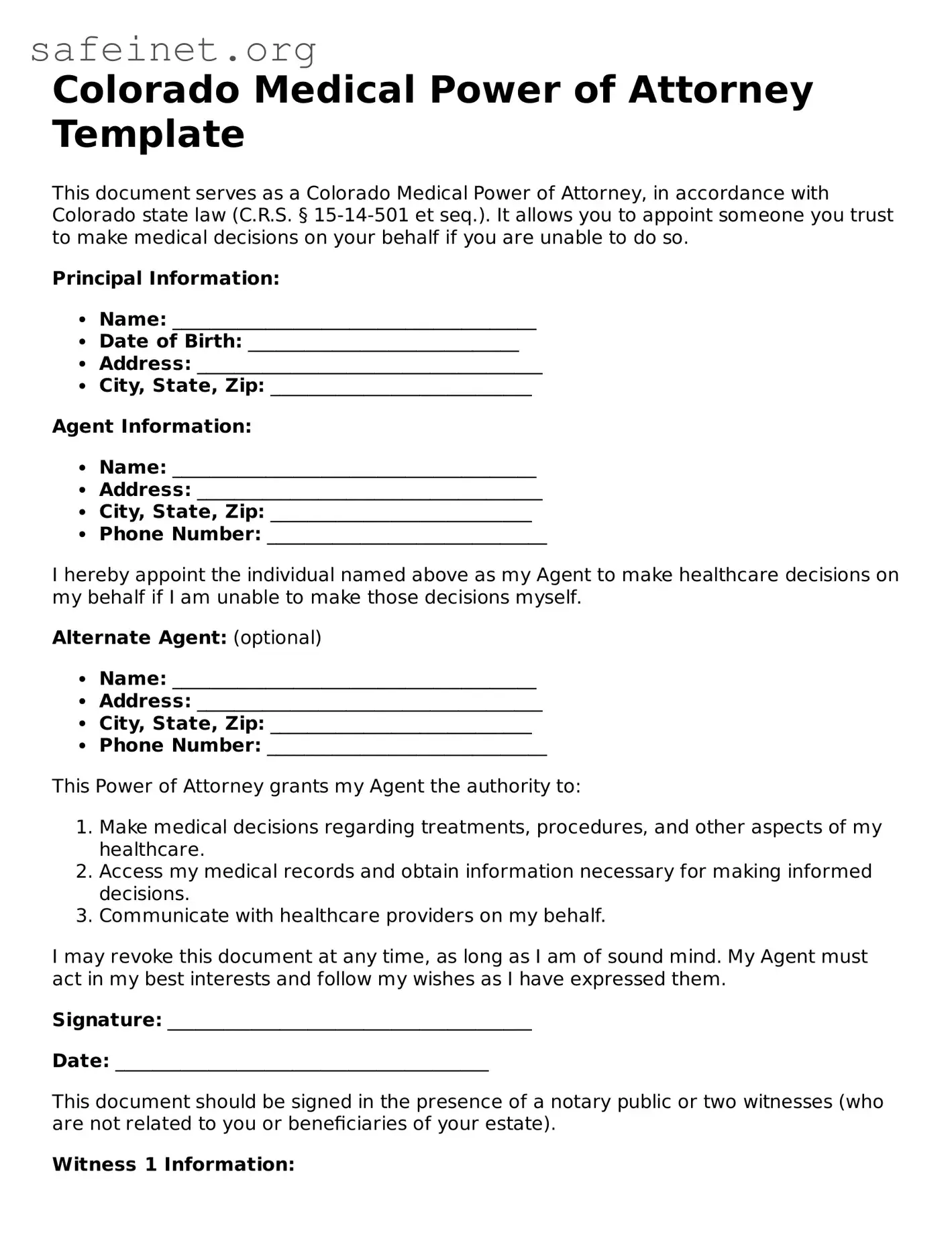What is a Colorado Medical Power of Attorney?
A Colorado Medical Power of Attorney is a legal document that allows you to appoint someone you trust to make medical decisions on your behalf if you become unable to do so. This ensures your healthcare preferences are honored even when you can't voice them yourself.
Who can I appoint as my agent in a Medical Power of Attorney?
You can choose any competent adult to be your agent, but it’s generally best to select someone who understands your medical wishes and is willing to advocate for you. Common choices include family members, close friends, or trusted advisors.
Do I need a lawyer to create a Medical Power of Attorney in Colorado?
No, you don’t need a lawyer to create a Medical Power of Attorney in Colorado; however, seeking legal advice is always a good option. You can find forms online or through healthcare providers to help you create a valid document.
Can I change or revoke my Medical Power of Attorney?
Yes, you can change or revoke your Medical Power of Attorney at any time as long as you are competent to do so. Just make sure to inform your agent and any relevant healthcare providers about the changes to keep everyone updated.
What happens if I don’t have a Medical Power of Attorney?
If you don’t have a Medical Power of Attorney and can’t make medical decisions for yourself, healthcare providers will often turn to your closest relatives to decide. This might not ensure your preferences are followed, so having a document in place helps clarify your wishes.
Does the Medical Power of Attorney expire?
The Medical Power of Attorney does not have a specific expiration date unless you specify one when you create the document. It remains effective until you revoke it or until your death.
What type of decisions can my agent make on my behalf?
Your agent can make a range of healthcare decisions, including choices about medical treatments, surgeries, and long-term care options. The extent of their authority can vary based on your specific instructions outlined in the document.
